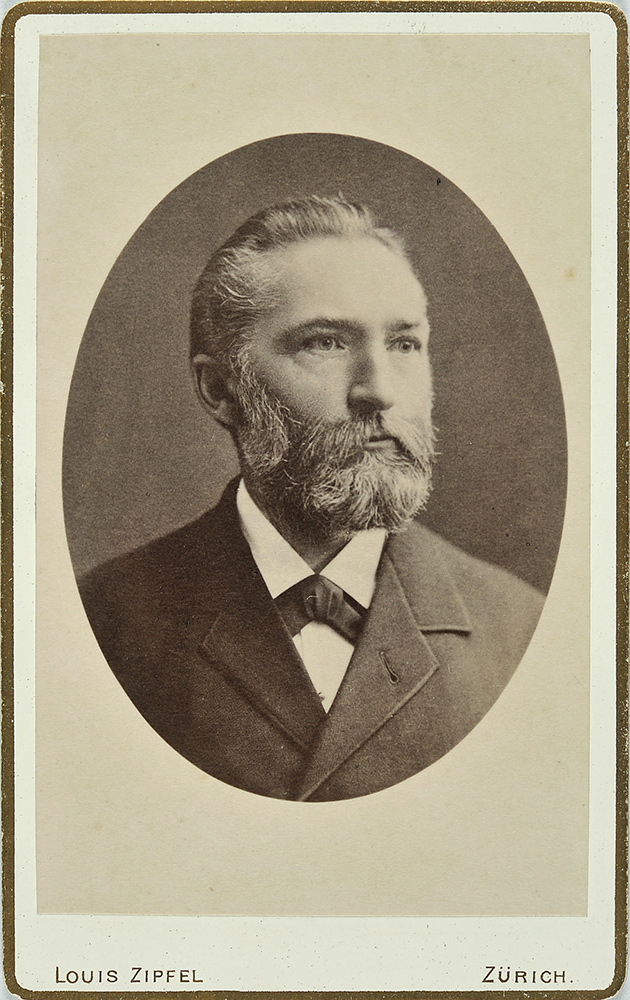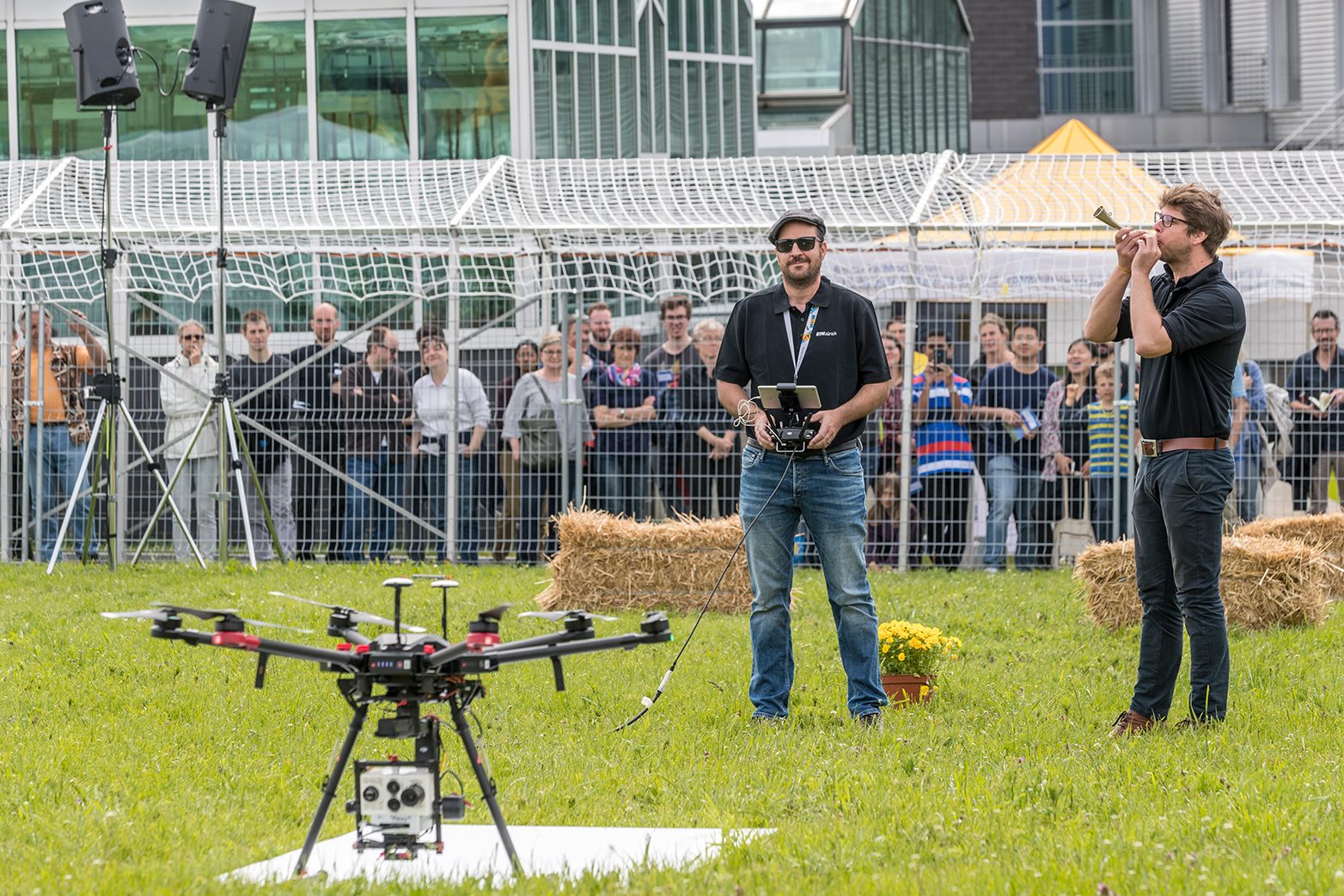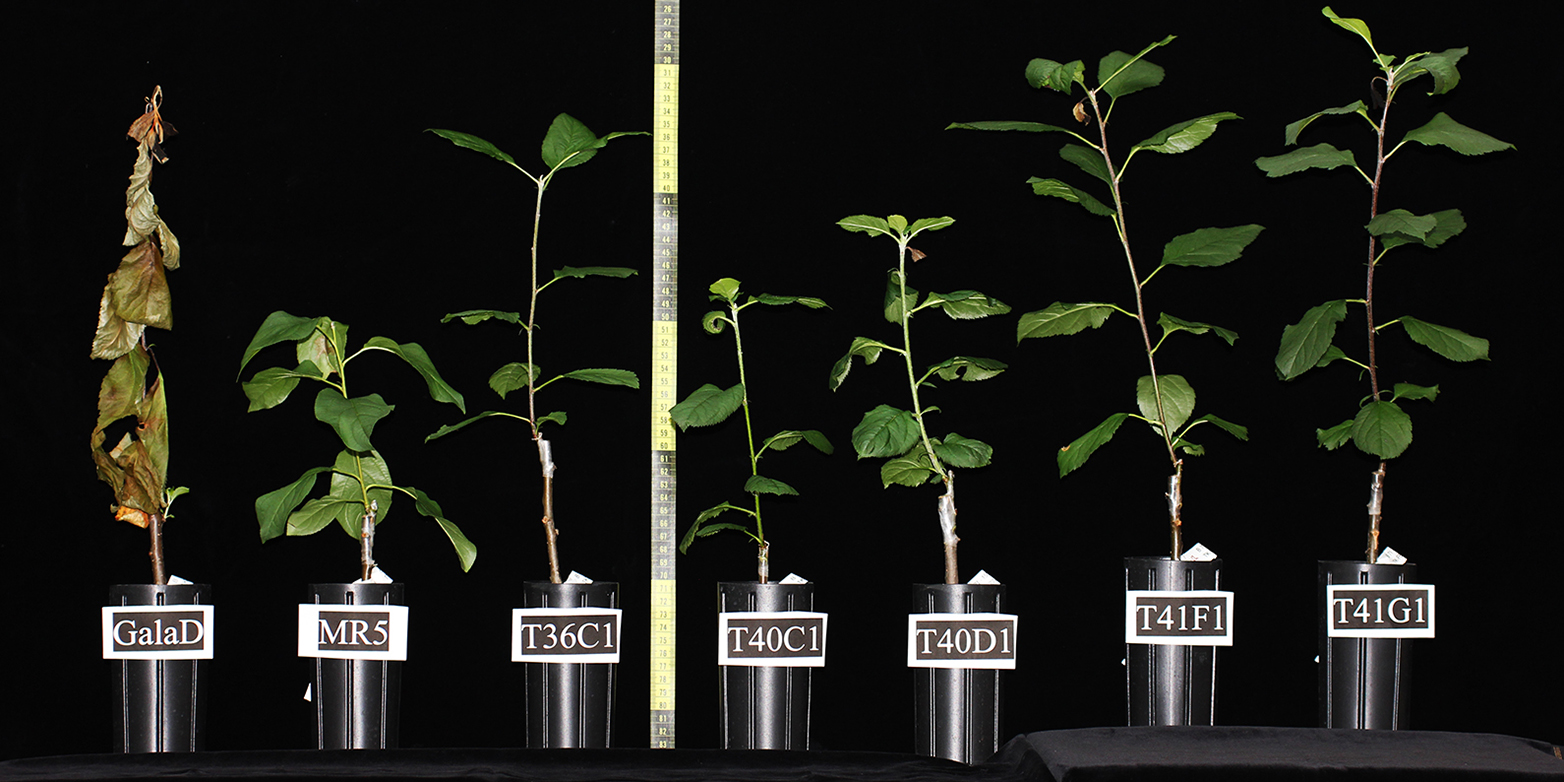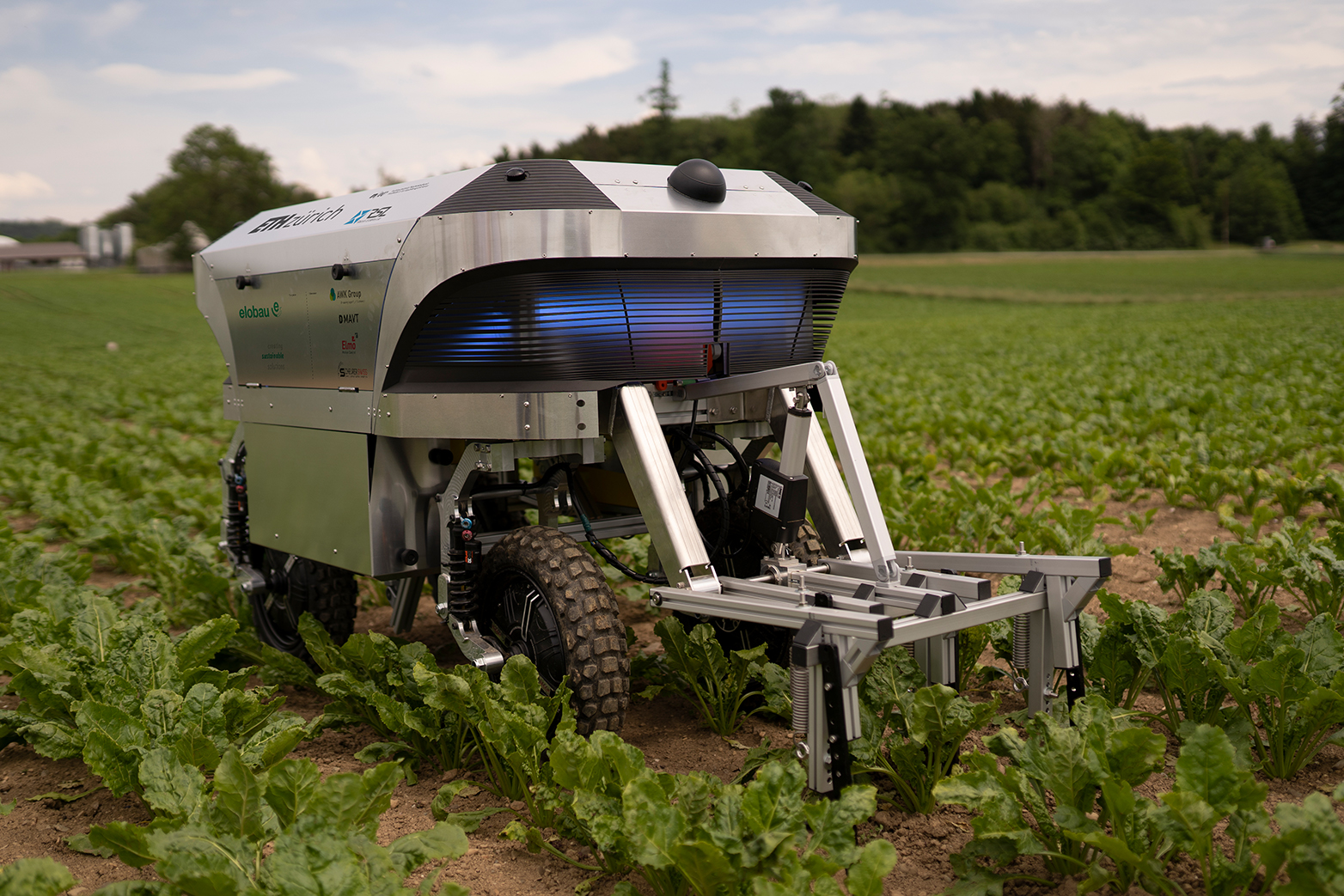Agriculture – highly topical yesterday, today and tomorrow
ETH Zurich’s Division of Agriculture was founded in 1871. One glance at its 150-year history is enough to know why the subject is still so important today.
Switzerland was an agricultural country until well into the 19th century. Given its share of the gross national product and the fact that over 80 percent of the population were involved in farming, agriculture was the single most important economic sector. However, increasing industrialisation and the shift towards a service economy meant that agriculture was compelled to evolve, too. While in other countries, particularly in Germany, agricultural sciences were already well established at universities, in Switzerland the teaching focused on empirical aspects; there was a distinct lack of systematic research in the agricultural sector. That all changed when parliament passed the somewhat awkwardly titled “Federal act concerning the extension of the forestry school of the Swiss Federal Polytechnic Institute to a school of agriculture and forestry” and the School of Agriculture was founded at ETH Zurich in 1871, some 150 years ago.
An outstanding faculty-student ratio

The first three professors were soon appointed. Adolf Kraemer taught animal husbandry, Anton Nowacki received the first professorship for agronomy and crop cultivation, while Kraemer’s later son-in-law Ernst Schulze specialised in agrochemistry. It is worth noting that all three were men – and foreigners to boot. There were simply no female or Swiss candidates at the time for positions such as these. Nonetheless, the staff-student ratio was fantastic. The faculty consisted of just the three professors and five students. By 1875, a total of only 37 people had enrolled in the study programme. It wasn’t long before the first woman signed up: Maria Kovalik. A native of Russia, she completed her agricultural studies in 1877 after seven semesters, the very first woman to be awarded a degree by the Polytechnic Institute. Graduating in Agricultural Sciences in 1925, Lilly Leuthold was the first woman from Switzerland to follow in her footsteps. Another 67 years would pass before Silvia Dorn was elected Full Professor of Agricultural Sciences and Food Science at ETH Zurich in 1992.
All the same, ETH’s first agricultural scientists were unable to make any great progress. Although the Division of Agriculture was allotted 12 percent of ETH’s budget at the time, in 1871 this amounted to a mere 35,000 Swiss francs. The right to award doctorates, granted to ETH in 1909, was an important milestone in encouraging research in the agricultural sciences. As a result, in 1913, the first agricultural doctoral thesis on the “Physical properties of the equine hoof horn” made it into the history books. Emmanuel Frossard, Professor of Plant Nutrition at ETH since 1994, describes the early days of agricultural research as “invariably creative. It was conducted at an outstanding level. This made it possible to train young researchers who, in turn, had a formative influence on generations of academics.”
A broad range of disciplines
Despite a slow start, the subject area soon made great headway. Meanwhile, the former Department of Agriculture was constantly being restructured. Along with Frossard, Michael Kreuzer, Professor of Animal Nutrition, has the longest tenure at the Institute of Agricultural Sciences. He underlines the importance of the 2010 merger that combined the disciplines of livestock science and plant science in one institute. Finally, the Department of Agricultural and Food Science was split up in 2012. The Institute of Agricultural Sciences was integrated into the new Department of Environmental Systems Science – a decisive step in recognising agricultural sciences as a systemic science.
Today, the Institute comprises twelve professorships, with a further eight associated professorships from other departments. Although the focus is still on plant and livestock science, it also includes agricultural economics, sustainable agroecosystems and computer-based agroecosystem sciences.
“Agricultural sciences are not one single discipline, but a whole range. While the priority used to be ensuring sufficient agricultural production, now it is about optimising multifunctional agriculture in a way that protects the environment,” Frossard says. Apart from a dip in the early 2000s, the study course has proved popular. Each year, some 70 students begin the Bachelor of Science in Agricultural Sciences, half of them women.
Agriculture – an emotional field
Although Switzerland is no longer an agrarian state, farming and thus also agricultural sciences at ETH are still an extremely emotive subject, as shown by various recent episodes. At Expo.02, the sixth Swiss national exposition in 2002, ETH presented the crop plant maize in the special “Expoagricole” exhibition in Murten, garnering an overwhelming response from the public. By the same token, open days such as those in the AgroVet-Strickhof education and research centre regularly attract crowds of visitors.

Yet agricultural sciences are also controversial. In 2014, an ETH study on the subject of cowbells not only created an international stir, it also led to a critical motion being proposed in parliament. In 2016, a congress on plant breeding in the ETH Main Building was disrupted when several anonymous protesters invaded the Audimax, throwing cow dung at the audience.
Swiss research with an international reach
Although the prominent role that agriculture plays in Switzerland is undisputed, the agricultural sciences at ETH are also renowned far beyond the country’s borders. The latest QS World University Rankings list ETH’s agricultural sciences and forest ecology in sixth place. Time and again, ETH has attracted attention with its research. ETH alumnus Hans Rudolf Herren is regarded as a pioneer in biological pest control. During the 1980s, he successfully combated a pest rampant in Africa, the mealybug, that was endangering the staple food cassava. He received several awards for his work, including the “Alternative Nobel Prize”. In 1993, ETH agricultural scientists launched the world’s first open-air CO2 fumigation experiment on grassland, which studied the effects of increased CO2 concentration – a visionary undertaking from today’s perspective. And in the 21st century, ETH plant pathologist Cesare Gessler created cisgenic apples resistant to apple scab and fire blight by incorporating Malus resistance genes.

And what does the future hold?
Agricultural sciences at ETH combine basic and applied research with a clear focus on current topics at all times. Kreuzer is confident that systemic thinking will continue to shape the future of agricultural sciences: “We have to take a much closer look and weigh up which aspects are merely interesting and which are truly relevant to the whole system.” Climate change will continue to be a major concern. How can the amount of methane emitted by livestock be reduced? What aspects must be taken into account when cultivating drought-tolerant plants? Digitalisation is already transforming agriculture and will be even more important in future. Even today, ETH is conducting intensive research into smart farming. Robots control weeds effectively, reducing the amount of herbicide required. AI could soon replace the onerous, yet necessary, manual task of gleaning. As a logical consequence, the Institute’s latest professorship is in environmental robotics.
Teaching methods are also being adapted to future challenges on an ongoing basis. The aim is for higher education to better address current conflicting priorities and unresolved agricultural questions: What is the relationship between biological and conventional farming or between the business-oriented logic of value chains and the needs of natural ecosystems? One thing is clear: agricultural sciences at ETH are perfectly placed to answer the central questions of the next 150 years.

The anniversary of the Agricultural Sciences
The Department of Environmental Systems Science (D-?USYS) starts their anniversary year with an online event on 4 May 2021, kicked off by a video featuring Guy Parmelin, President of the Swiss Confederation, together with ETH President Jo?l Mesot and representatives of the Department.
Following the premiere of this anniversary film, various webinars on the important topics in agricultural sciences will be held in different languages on the virtual stages. Afterwards, the Institute of Agricultural Sciences invites you to a very special virtual aperitif. Participation in the conference is free of charge, no registration needed.
On the anniversary website you can already find a timeline with historical facts and selected stories from the past 150 years.